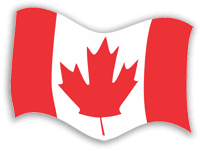|
Frank Underhill was a noted Canadian historian a half century
ago, even if he is now almost forgotten. But he wrote one
sentence that still rings true: Canadians, he said, were the first anti-Americans, the
ideal anti-Americans, the anti-Americans as they exist in the
mind of God. In no period of Canadian history was that
description so exactly right as in the years after 1968.
Pierre Trudeau became prime minister that year. He was a new
kind of leader, an intellectual who dressed well and dated
beautiful women. But unlike most Canadian leaders he did not
understand the United States, and he believed that Canada should
be as distant from the U.S. as from the Soviet Union. He had to
deal with President Richard Nixon, no easy task, and Nixon was
very unpopular in Canada. Trudeau had to handle rising Canadian
nationalism, and his government put in place the Foreign
Investment Review Agency to control Americans buying out
Canadian companies. And although Trudeau was in office when
Moscow was in an aggressive phase, he cut the Canadian Forces’
contribution to European defence in half and soon scrapped
Canada’s nuclear weapons. None of this pleased the U.S.
Trudeau left office in 1984, and Progressive Conservative Brian
Mulroney took power. Mulroney was no Trudeau — he set out to
make friends with President Ronald Reagan and to declare that
Canada “was open for business” again. And so it was. Under
Mulroney, Canada and the United States struck a Free Trade
Agreement in 1988, a massive trade and economic deal that was
the first of its kind since the 1850s. And whenever Mulroney
could do so, he worked closely with U.S. leaders on foreign and
defence policy. Canada was a smaller power, but Mulroney
demonstrated that a prime minister could get substantial
influence by playing his hand with skill. Some, for example,
give Mulroney much credit for German reunification after the
fall of the Berlin Wall.
But many Canadians hated that Mulroney seemed to be in bed with
the Americans, and he was easily the most unpopular Canadian
leader in history when he left office in 1993. His successor,
after the election that year, was Jean Chrétien, a Liberal who
led a very anti-American party. Chrétien clearly understood that
Canada had to get on with the U.S. — the Canadian economy was
too closely linked for it to be otherwise — but with the Cold
War over, the defence relationship with the U.S. seemed less
important. Also, he had President Bill Clinton to deal with, and
Clinton was able, intelligent, and personable, much easier to
get on with than presidents like Nixon and Reagan. So Chrétien
talked publicly about keeping his distance from the U.S., but
played golf with Clinton, with whom he was on friendly terms,
whenever he could.
However, his government annoyed Washington frequently. One issue
was an international treaty to ban land mines, pushed by foreign
minister Lloyd Axworthy. Another was the plan for an
International Criminal Court to try war criminals. Both were
good ideas but for various reasons the United States refused to
support them; Axworthy’s openly anti-American sentiments did not
make it any easier to get U.S. support.
Then when George W. Bush became president in January 2001,
relations became even more difficult between Ottawa and
Washington. Canada opened its airports to airplanes caught in
mid-flight by the al-Qaida attacks on the United States, but
Chrétien seemed cool in expressing Canadian sympathy for the
U.S. losses. Chrétien did provide an infantry battalion to
support the American effort in Afghanistan in 2002, but his
government flatly refused to participate in the Iraq War in
2003, instead sending troops back to Kabul, the Afghan capital.
The Americans had not received United Nations approval for the
war against Saddam Hussein’s regime, he said. That was true, but
a very anti-war and anti-American Quebec was in the midst of an
election and that may have helped shape Ottawa’s response. So
too did the very strong anti-Bush sentiment all across the
nation. Anti-Americanism was at its peak, and the government did
nothing to check it.
The point is that a wise Canada must always consider American
concerns when it acts. With 80 percent of its trade with the
U.S., delays at the American border can hurt the economy. With
its defence depending on American military support, Canada needs
to be aware of how the U.S. sees global threats.
Balance is everything. Canadians want to be independent, and
they are not Americans, not now, not ever. But they cannot be so
anti-American that their words and actions hurt them. Pierre
Trudeau and Jean Chrétien perhaps pushed the limits of
acceptable anti-Americanism, just as Brian Mulroney sometimes
seemed to go too far in the other direction. Again, balance is
everything, and the most successful Canadian leaders understand
always that Canada must be on good terms with the United States.
But not too good.
Historian J.L. Granatstein is editor of The Canadian Experience.
He writes on Canada-U.S. relations, foreign policy and defence.
Next Instalment: Canada’s World, Pearson’s World
The Canadian Experience is a 52-week
history series designed to tell the story of our country to all
Canadians. Sponsored by Multimedia Nova Corporation and
Diversity Media Services partners, the series features articles
by our country’s foremost historians on a wide range of topics.
Past articles and author bios are available at
http://www.cdnexperience.ca. The Canadian
Experience is copyright ©2010-2011 Multimedia Nova
Corporation.
|
|
 #43 Anti-Americanism at its Peak
#43 Anti-Americanism at its Peak
